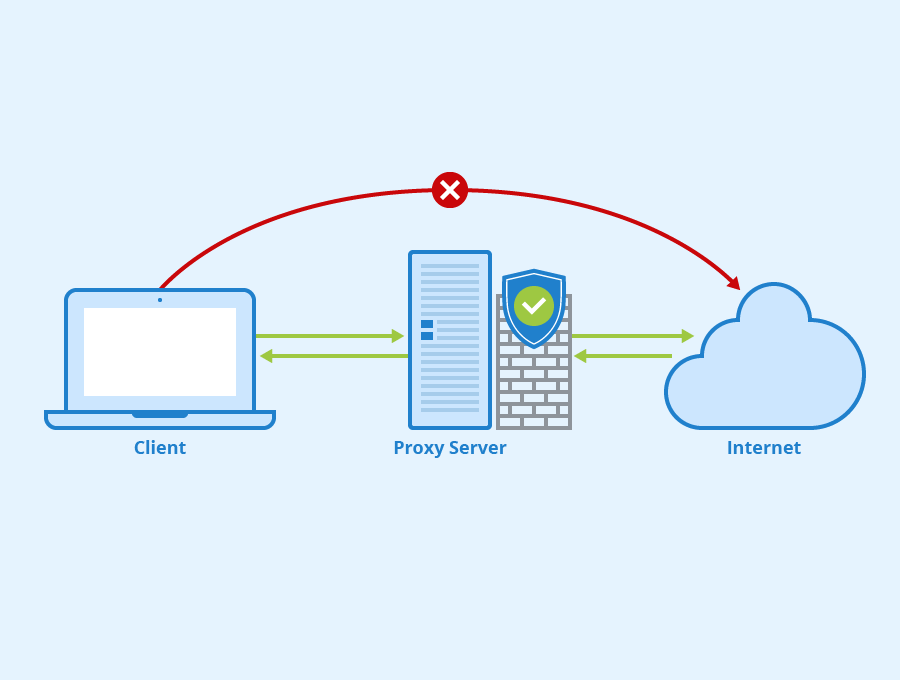Within today's online age, web users are often faced with the difficulty of maintaining their online confidentiality and protection. As an increasing number of people link to the web, the threat of bandwidth throttling and unauthorized information access increases. This is where proxy servers come into action, offering a remedy that helps users maneuver through the complexities of the internet while safeguarding their privacy and enhancing their online experience.
Proxies act as middlemen between users and the internet, providing a layer of disguise and protection by masking IP addresses and regulating traffic. Whether you're looking to stream your beloved shows, access geo-restricted content, or simply boost your online safety, understanding how proxy servers work and their potential advantages is crucial. In this write-up, we will investigate various aspects of proxies, including their differences from VPNs, the protection elements they offer, and the ethical considerations surrounding their utilization. Join us as we explore the world of proxies and discover how they can help you escape bandwidth throttling while enhancing your online potential.
Comprehending Proxy Servers and Their Functions
Proxies act as middlemen between your device and the web. When you attach to a proxy server, your inquiries for websites and online services are primarily transmitted to the server. The proxy then sends those requests to the intended site, gathers the information, and delivers it back to you. This procedure effectively hides your IP location, providing a layer of privacy while browsing the web.
There are multiple types of proxy servers, each serving distinct purposes. HTTP proxies are mainly utilized for internet traffic, while SOCKS proxies can handle various types of traffic, including email and transfers of files. Transparent proxies do not change your inquiries, while others, such as high-anon proxies, mask your personal information more thoroughly. Grasping the distinctions among these types can guide you select the right proxy for your requirements.

Using a proxy server not only enhances confidentiality but can also improve protection. By routing your traffic through a proxy, your information is less susceptible to be caught by hackers. Additionally, select proxies come with capabilities like data encryption, further protecting your details. Utilizing these servers can be a tactical move for individuals and companies looking to protect their web activities.
Benefits of Using Proxy Servers
Using proxy servers provides various perks for individual users and organizations. A key among the main benefits is increased online privacy. By routing your internet traffic through a proxy, your real IP address is masked, making it hard for websites and online services to trace your activities back to you. This added layer of anonymity is essential for those who wish to navigate the internet without being watched by advertisers or other third parties.
Additionally significant benefit is improved online security. Proxy servers can act as an intermediary between the user and the internet, purging malicious content and blocking access to harmful websites. This protection is critical for organizations that want to secure sensitive information and ensure their employees operate in a protected online environment. Using https://omeka.net allows for the application of security measures like access control and content filtering, which can help create a safe network.
Additionally, proxy servers can improve the overall navigating experience. They have the capability to cache web pages and content, resulting in quicker load times for frequently visited websites. This is notably beneficial for companies that rely on productivity, as employees can access necessary resources quickly. Furthermore, proxies enable users to evade geographic restrictions and access blocked content, turning them into an essential tool for anyone looking to navigate the internet without barriers.
Proxy Services for Online Privacy and Protection
Proxy services play a important role in improving online privacy and safety by acting as intermediaries between users and the internet. When a person connects to a server, their web queries are sent through the server, masking their true IP location. This anonymity helps stop websites and online platforms from monitoring individual behavior, which is ever crucial in an age where information privacy is a significant issue. Additionally, proxy servers can filter and deny harmful material, further protecting individuals from possible dangers.
One of the main advantages of using proxy services for protection is their capability to encrypt data transmitted between the user and the server. This encryption helps protect sensitive information from being captured by hackers or other harmful actors. By using safe proxy servers, individuals can protect their online transactions, interactions, and personal information, making it significantly harder for hackers to exploit vulnerabilities. This is especially vital for businesses that process sensitive data, as proxy servers provide an extra layer of protection against information breaches.
Additionally, proxy servers can help individuals access geo-restricted material while preserving anonymity. Many internet service providers and streaming services track user positions and can enforce regional restrictions. By using a proxy service located in a alternate region, users can evade these restrictions without revealing their true IP addresses. This ability enables users to access a broader range of content while keeping their internet activities confidential and protected, ensuring a more secure surfing experience generally.
